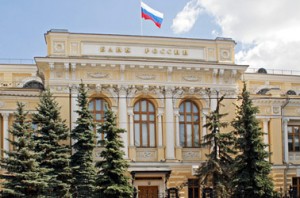Russia raises interest rates to prevent capital flight
Sunday, July 27th, 2014 1:21:29 by Nadeem Bajwa
The Russian central bank gained unexpectedly Friday the benchmark interest rate from 7.5% to 8%, Reuters reports, with the aim of trying to prevent investors in anticipation of new sanctions by the West, pull their money in the country and avoid the higher prices caused by the sharp depreciation of the currency. It is the third rise in the price of money so far this year, a factor that does not help to stimulate an economy that stalled in the second quarter and, according to recent estimates by the International Monetary Fund, will grow just 0.2% this year, the worst figure since 2009 when the economy went into recession.
“The Russian central bank has justified its decision due to unexpected high inflation but very clearly a preemptive move to limit capital outflows at the prospect of new sanctions by the U.S. and Europe,” said via e -mail Neil Shearing, chief emerging markets economist at Capital Economics in London.
Only in the first six months of the year, a net balance of 75 billion left the country before the escalation of the conflict with Ukraine, well above the 62,700 million recorded throughout 2013, according to the Institute of International Finance. And experts fear that this outflow is accelerated if the EU finally reached an agreement to implement a new phase of economic sanctions. Even before the United States expanded its sanctions against the country, Secretary of State for Finance, Sergey Storchak, admitted that the sanctions already imposed on Russia were having “a serious indirect impact” on the economy.
On 16 July, the U.S. forbade its citizens to finance Gazprombank and VEB, two major Russian financial institutions and energy companies Rosneft and OAO Novatek, thus limiting their access to capital markets in the United States.
It is true that the weakness of the ruble has led to a rise in inflation to 7.8 % in June, almost double the 4% target set by the central bank for the whole year. In fact, the ruble is the currency worst behaved among emerging countries, with a depreciation in so far this year closely to 7 %, although the fact that “the country’s international reserves are among the five largest in the world, with almost 500,000 million, equivalent to 20% of GDP, making the country in a clear position of comfort “to support the currency, says Alex Fusté Andbank chief economist.
Tags: European Union, Russia, sanctions, United StatesShort URL: https://www.newspakistan.pk/?p=46791

















